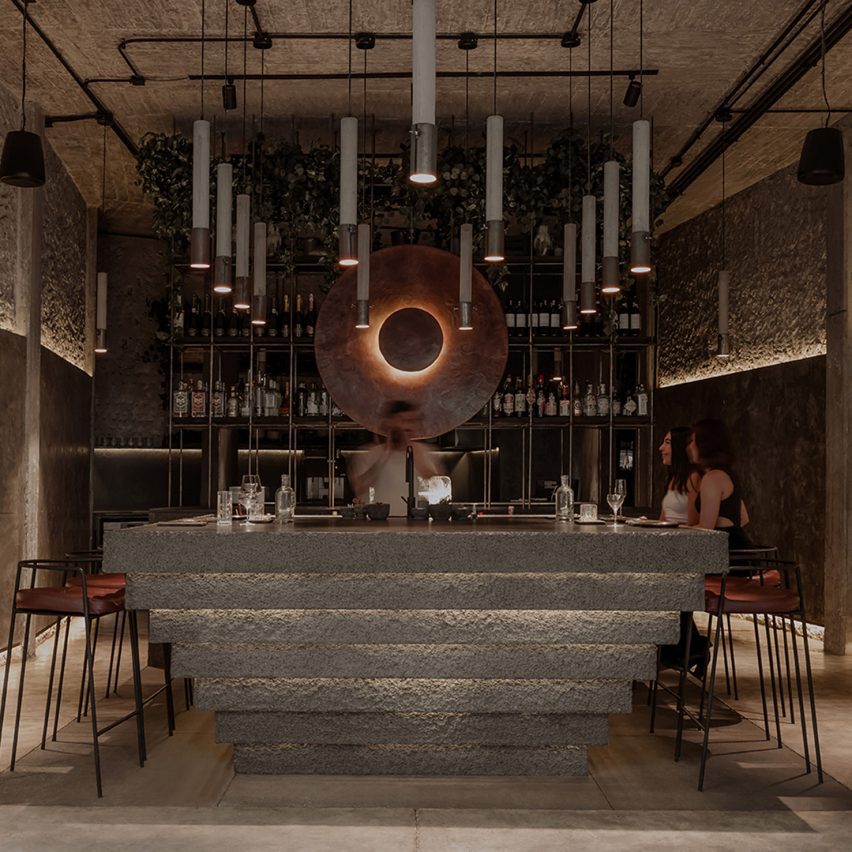
A bar counter shaped like an inverted ziggurat sits at the centre of this restaurant in Mexico City, designed by local architecture studio RA!
Tana is a tapas spot located in the city’s wealthy Polanco neighbourhood, within a compact and intimate space facing Parque Lincoln.
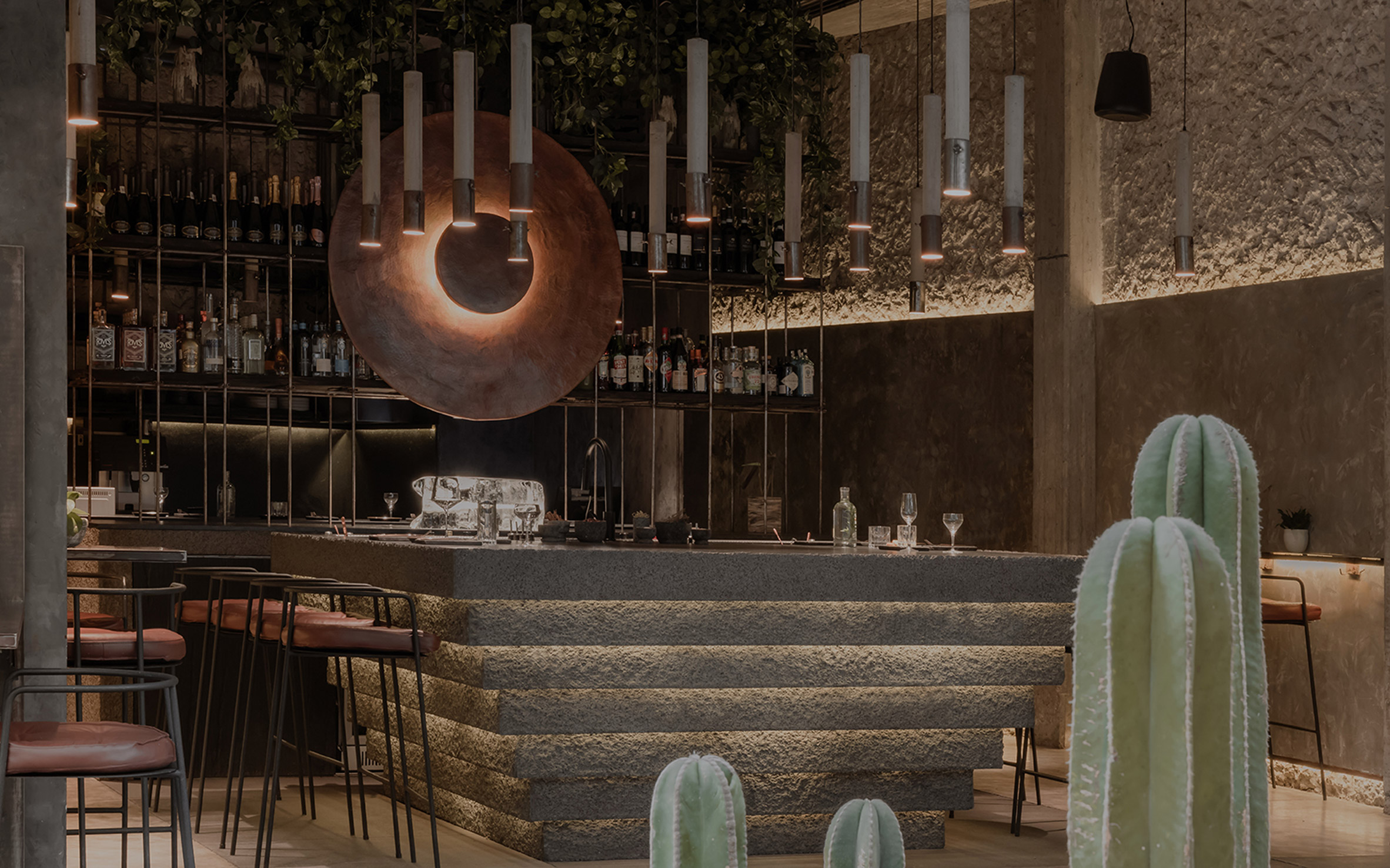
RA! gutted the 65-square-metre unit to make way for its cave-like concept, achieved by applying textured plaster and concrete across the four-metre-high walls.
“The intervention began by demolishing the superimposed finishes of the old premises, in order to discover the structure and the materials that originally constituted the space,” said RA! co-founder Pedro Ramírez de Aguilar.
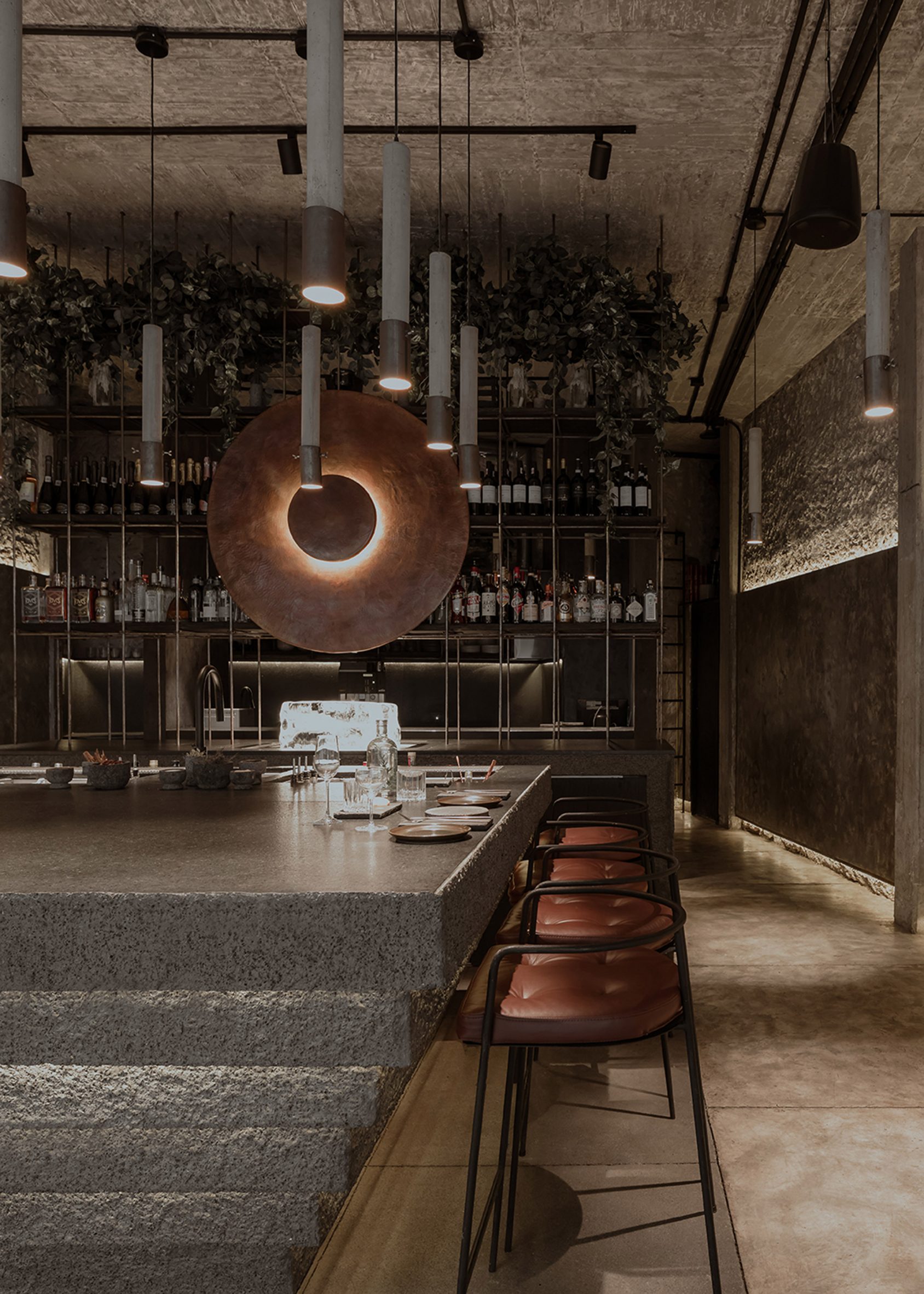
“The balance of the sounds, colours, textures and tones of the space creates a cave atmosphere that shelters those who inhabit it,” he contined.
The main dining area is organised around a central bar counter, which has a stepped form reminiscent of an ancient pyramid – similar to those located at the Aztec archeological site of Teotihuacan just outside of the city.
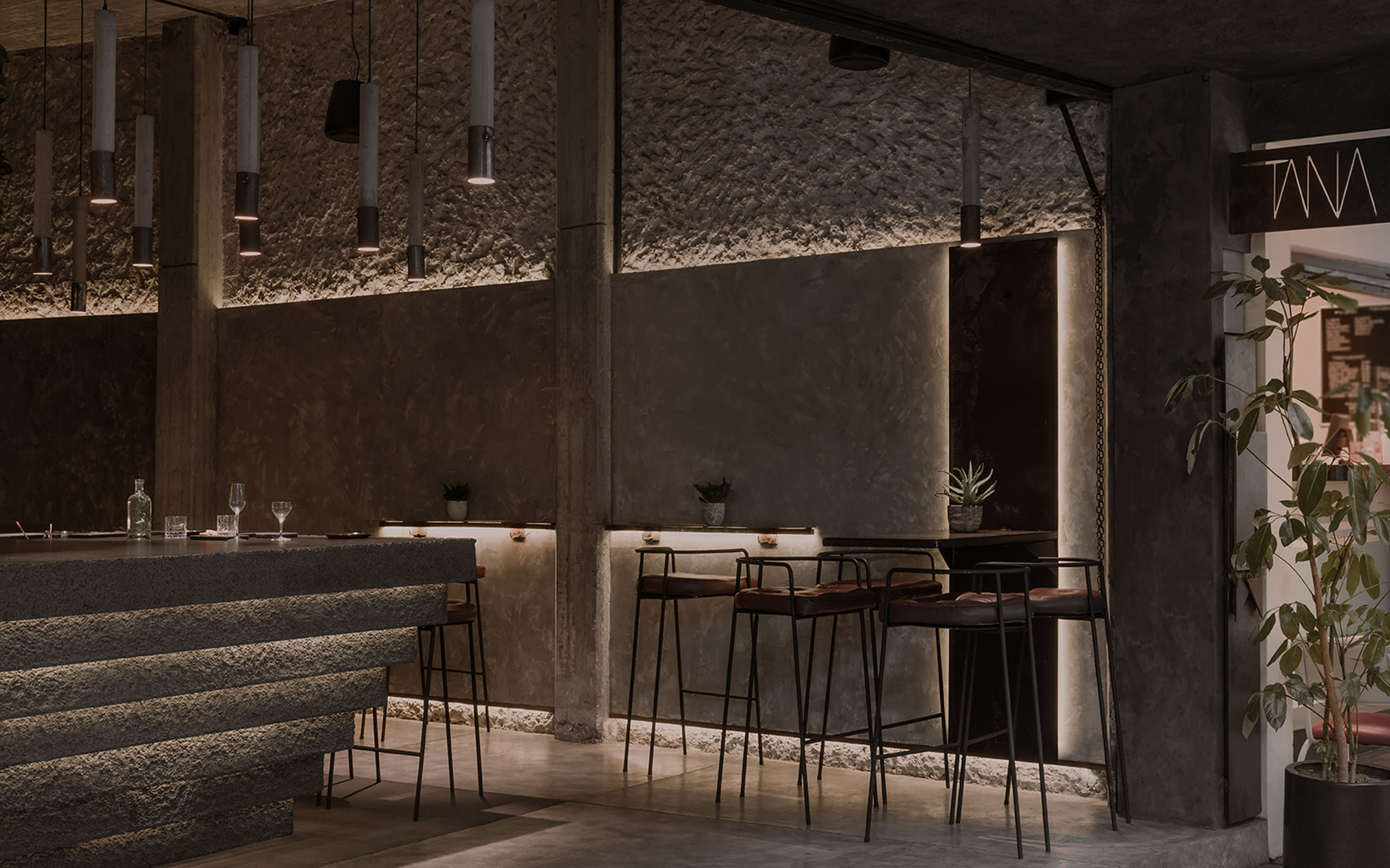
Rough concrete also wraps the bar’s tiered sides, under which cove lighting is installed to illuminate each layer.
“The bar questions the traditional linear organization of bars to create a square distribution that allows greater coexistence between users and the mixologist,” Ramírez de Aguilar said.
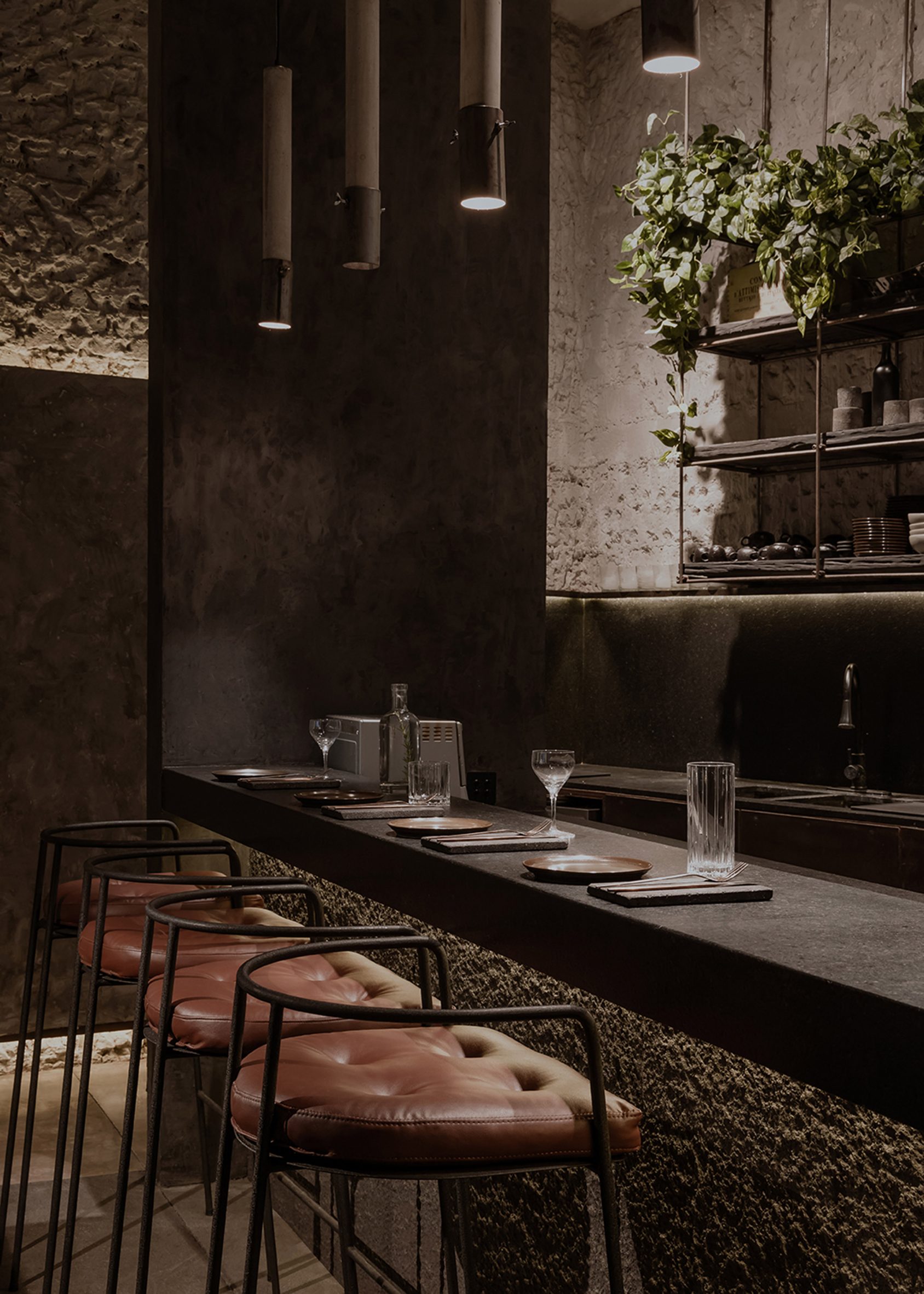
Further cove lighting encircles the room just above floor level, and about two-thirds of the way up the walls, as well as beneath the narrow drink shelves.
Behind the bar, a copper lighting fixture comprises two concentric circles, with a soft glow emanating from behind the small, front disk.
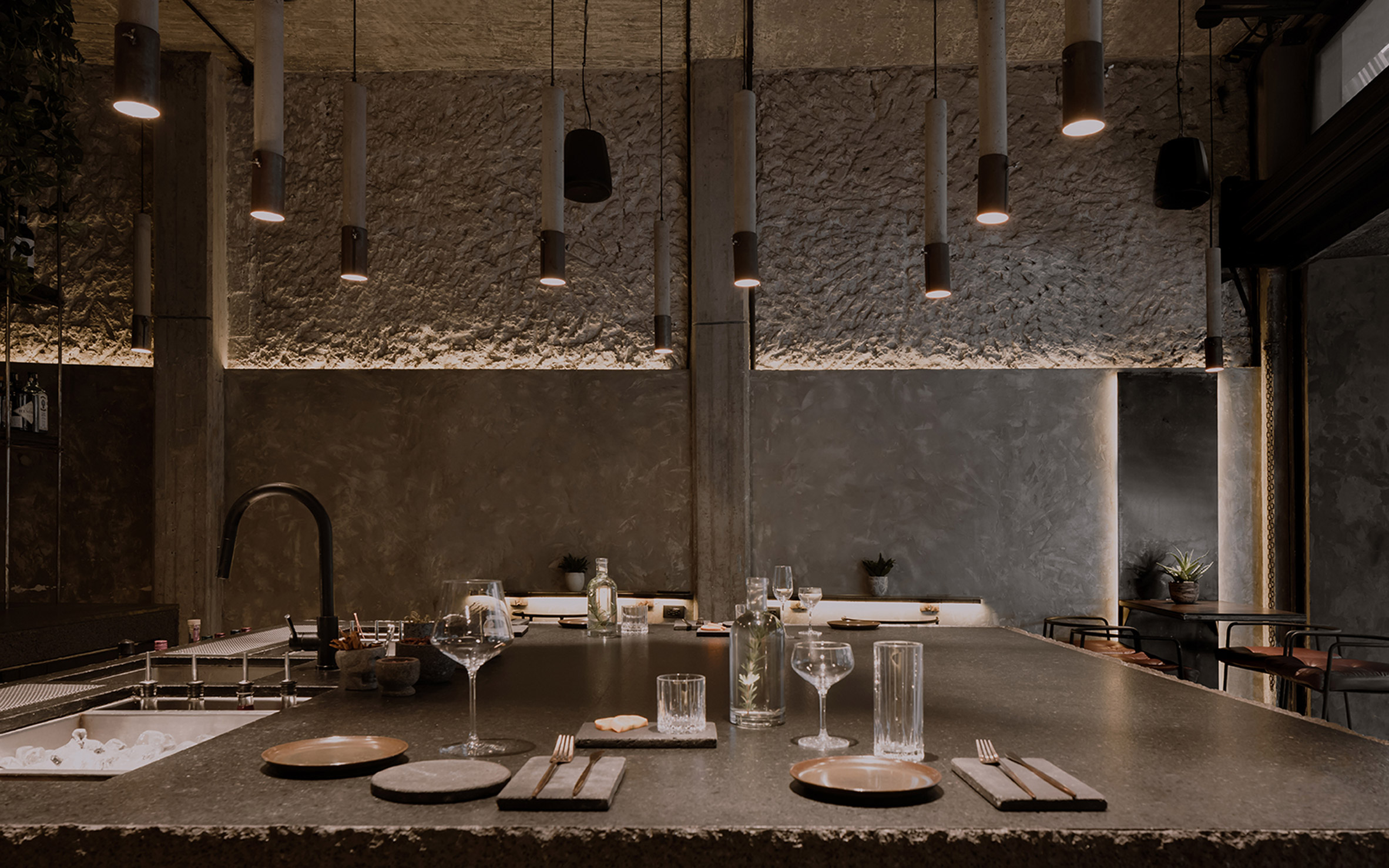
The copper fixture was mounted on a floor-to-ceiling shelving system built from thin metal pipes, which displays liquor bottles and holds hanging plants at the top.
“The plate made in Michoacán, Mexico, is positioned on a large formation of rods that go from the support cabinet to the ceiling, generating a series of shelves on which the bottles and other service elements are positioned,” said Ramírez de Aguilar.
Tall, slender-framed stools surround the bar, and provide additional seating along either side of the space.
Above hang cylindrical concrete pendant lamps with steel caps, which direct the light downwards as a series of spots.
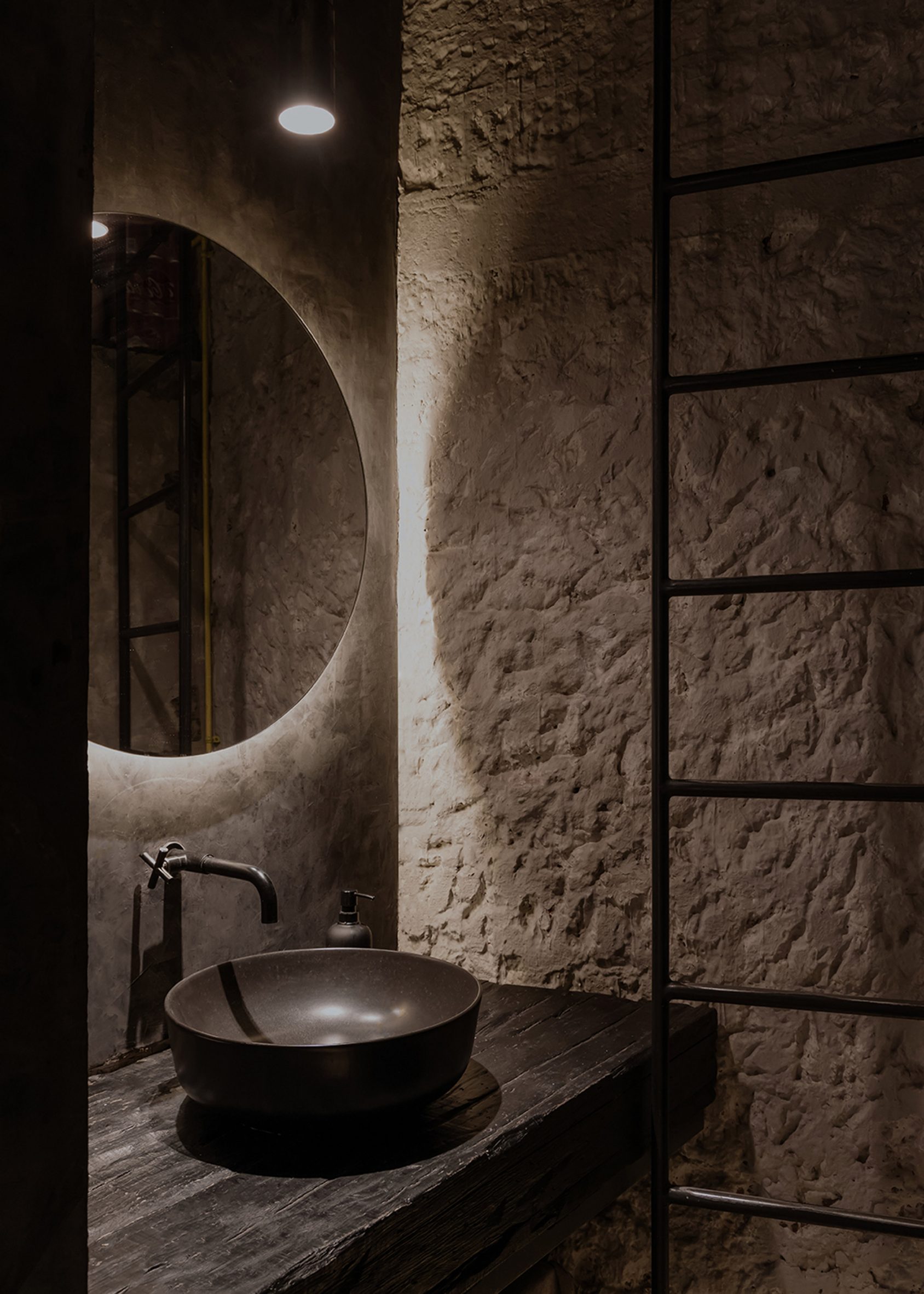
Behind the shelving unit is a small, omakase-style dining area that offers guests a direct view of the kitchen.
The restaurant opens fully to the street, where more tables are placed on a covered patio surrounded by plants.
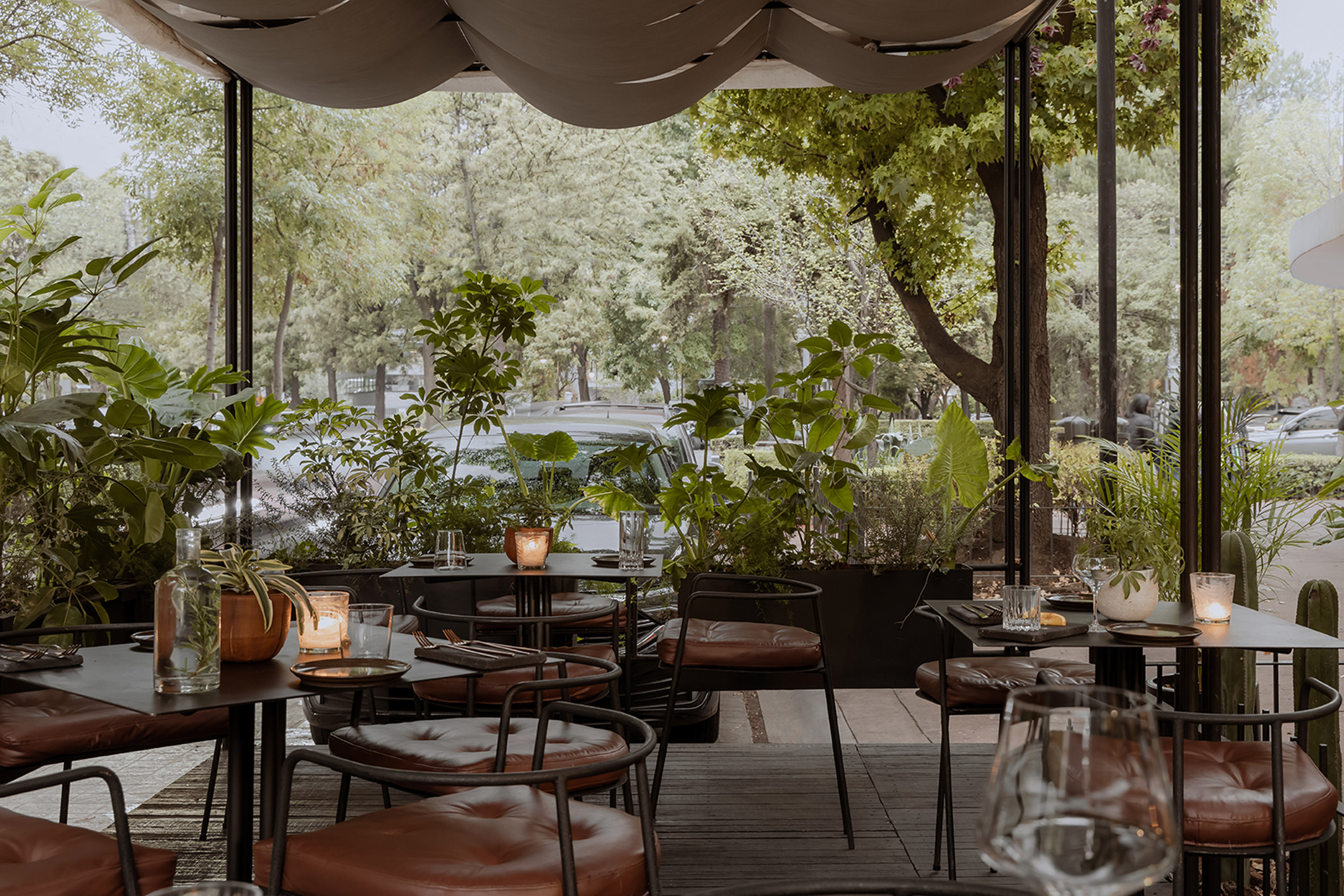
RA! was founded in 2017 by Ramírez de Aguilar along with Cristóbal Ramírez de Aguilar and Santiago Sierra in Mexico City, where the dining scene is booming and many creative minds are helping to shape interiors for its chefs.
Along with Tana, new spots include Pizzeria della Madonna in Roma Norte, which designer Sofia Betancur modelled on a neighbouring church, and Ling Ling, an Asian fusion restaurant on the 56th floor of the Chapultepec Uno skyscraper.
The photography is by Ariadna Polo.
The post Mexico City restaurant by RA! arranged around upside-down pyramid bar appeared first on Dezeen.
www.dezeen.com










